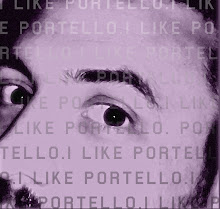 Philosophical Materialism is an interesting worldview. It’s the belief that …
Philosophical Materialism is an interesting worldview. It’s the belief that …
… all things are composed of material and all phenomena (including consciousness) are the result of material interactions; therefore, matter is the only substance (from Wikipedia).
This belief is obviously anathema to theists, because it defines out of existence any notion of a supernatural God.
It also has its share of philosophical problems. It’s an easy target for philosophical deconstruction and reasonably easy to paint as irrational.
For this reason theological arguments often conflate materialism with atheism, because the philosophical issues with materialism can be used to conclude that atheism is also irrational.
In fact, most arguments of the atheism-is-irrational variety boil down to this particular point.
But the argument fails right out of the gate. While all Philosophical Materialists are atheists it obviously doesn’t follow that all atheists are Philosophical Materialists. That’s a simple rookie error.
Like most atheists, my position is simply that theism has roundly failed to make its case.
I don’t reject religion because I think the material realm is all there is. I reject religion because once you scratch the surface of any religion it becomes clear it’s been created by humans.
Of course I can accept the possibility that there is something beyond this physical realm. I just don’t claim to know anything about it.
And here’s the thing: unless you can present some pretty extraordinary evidence to the contrary, you shouldn’t claim to know anything about it either.



3 comments:
Ayn Rand: you cannot privilege anything above your own reason.
Realising this was my first step towards atheism.
I must confess, Matt, I'm a philosophical materialist/naturalist. But I only hold to it because the scientific method is the only thing that can empirically determine that something exists. For example, if a divine miracle is observed, it becomes a natural phenomenon, as it has affected the material world.
Any supernatural phenomenon basically does not exist, pragmatically, until it affects the natural world, and then it becomes natural. So, technically, the material world is the only thing that does exist. In a way.
I'm of course not claiming absolute truth here, but I do hold to the belief of naturalism, as I can't see any way that supernatural things can really be said to exist. I'm open to the possibility of being proven wrong though, I'm not a cranky close-mined curmudgeon.
Nice post though. :D
Hi Jack,
That's really interesting.
I agree with you about the scientific method, but to me the supernatural is (more or less by defitinion) where the scientific method breaks down.
Suppose, for example, there was a God that could manipulate the physical laws at will. In that case supernatural events could impact the natural world and still be considered supernatural.
Obviously I don't believe in that, but it's not because I consider it impossible a priori. It's just because I see no evidence that it's the case.
Post a Comment